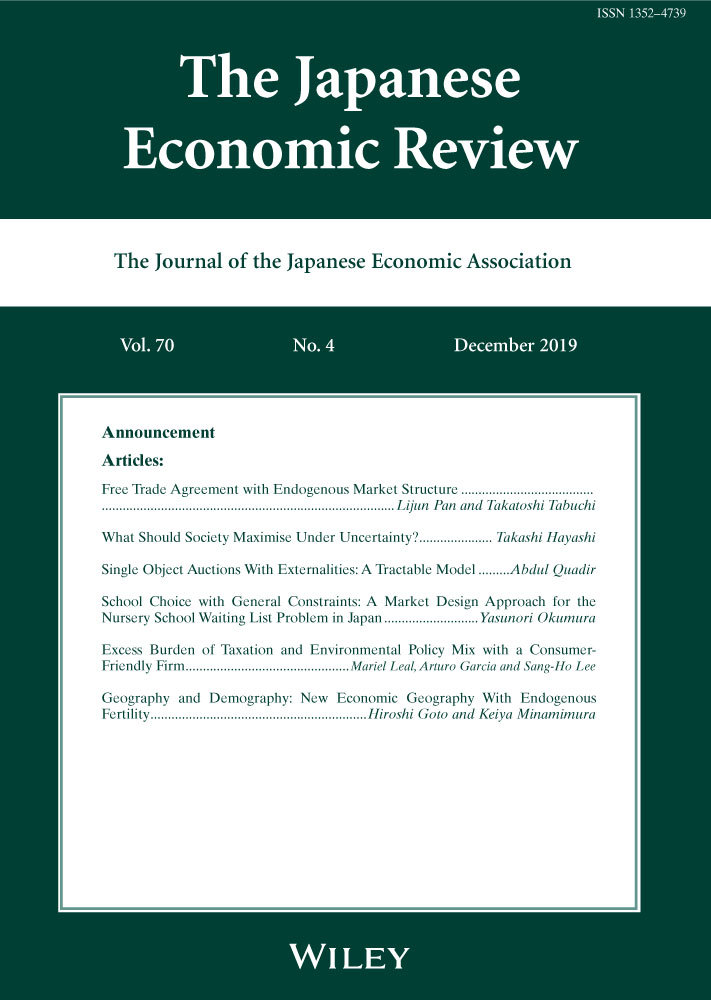Voluntary Export Restraints and Economic Welfare
Abstract
In this paper, we explore welfare implications of a voluntary export restraint (VER) agreement within a simple model of duopoly with product differentiation and conjectural variations. We assume that the foreign exporter does not sell its product in its own market and that the imposition of a VER makes the domestic firm into a Stackelberg leader. Under these assumptions, it is shown that a VER introduced at the free-trade equilibrium level of export is welfare-improving for the importing country if and only if the foreign exporter is forced to comply with the restraint involuntarily. In other words, it is impossible to benefit home country and foreign country simultaneously by a VER agreement within the class of models we are envisaging. This result holds irrespective of whether firms compete in terms of quantities or prices.




